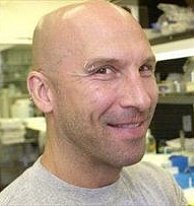How will your research contribute to extending healthy human life?
We are using the laboratory fruit fly Drosophila to identify genes and pathways that affect aging and that are conserved in humans. These studies have identified promising genetic and chemical interventions to pursue in future human studies.
What were the major breakthroughs made by your laboratory or companies?
Our research suggests that aging results in part from
Can your research be commercialized in the future and is there any way to invest in this research today?
Yes there are many ways this research can be commercialized. Our technologies, including
Several mechanisms are also available for commercial investment in the aging research ongoing in the Tower lab. These opportunities include partnerships with USC and the Tower lab in the development and testing of aging interventions appropriate for commercial development. We encourage inquires from interested potential research partners; please contact John Tower via email for further information on these opportunities.
In your opinion, what are the most promising companies contributing to longevity research today?
—
Do you think there will be significant breakthroughs in longevity research in the next decade?
Yes. I think that
Do you think it is a good time for iVAO to get into longevity business and invest in biotechnology in general?
Yes, as this is an area that is likely to expand in the near future.
Can you say a few words about the upcoming conference in St. Petersburg? What are your expectations?
I look forward to hearing about the latest advances in aging research from the leaders in the field.
